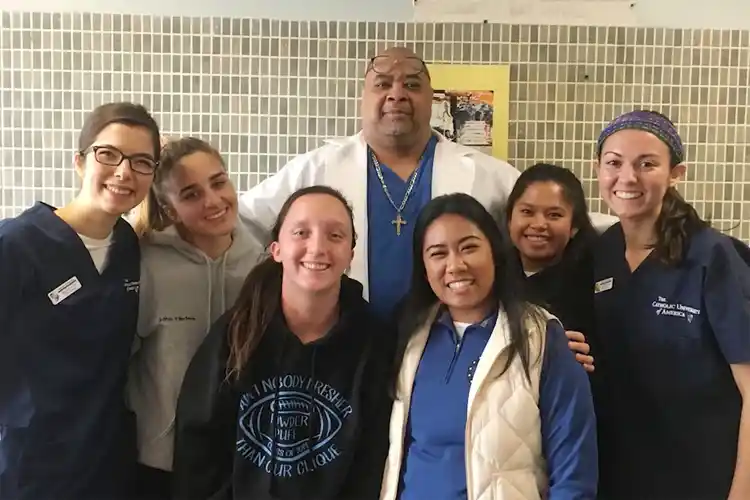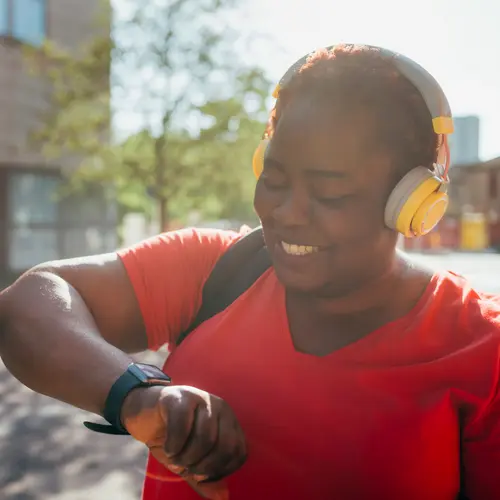How a Continuous Glucose Monitor Helps My Diabetes

Hide Video Transcript
Video Transcript
DWAYNE COLYER: Initial instructions included to stop eating so much carbohydrates, cut down on my pasta, my potatoes, French fries, ice cream, cake, everything I enjoyed eating. I'm in health care and I work 12 hour shifts.
And so for me to eat healthy was almost impossible where I worked in not so healthy foods because I was so tired all the time from working such long hours. It was much easier for me to pick up a Big Mac or a Whopper than to actually go home and take an hour and a half to cook a meal. So it took me quite a few number of years to actually get myself together.
My primary at the time introduced me to a nurse practitioner who specialized in endocrinology disorders. And she took over my care. And so she was very, very tough on me. And I'm a person who needs somebody to be very tough on me. She started me on continuous glucose monitor. And so because of her strength and her hardness on me, I started to change my diet.
And with the continuous glucose monitor, I was able to figure out over a period of time that-- Let's say, my blood sugar was 100. If I decided to eat a piece of steak, it would go as high as maybe 165. And if I ate ice cream, it would go as high as 350. So I learned what to eat and how to cover it with the different types of insulin.
I teach my students now to start changing these their lifestyle now. Eat healthy, exercise daily. It not only helps with the diabetes, but it is helps with your mental aspects, your physical aspects. Don't wait until, like me, you get this big surprise and a midlife crisis at the same time. If you could start in your 20s beforehand, it's the best thing you could do for yourself.
And so for me to eat healthy was almost impossible where I worked in not so healthy foods because I was so tired all the time from working such long hours. It was much easier for me to pick up a Big Mac or a Whopper than to actually go home and take an hour and a half to cook a meal. So it took me quite a few number of years to actually get myself together.
My primary at the time introduced me to a nurse practitioner who specialized in endocrinology disorders. And she took over my care. And so she was very, very tough on me. And I'm a person who needs somebody to be very tough on me. She started me on continuous glucose monitor. And so because of her strength and her hardness on me, I started to change my diet.
And with the continuous glucose monitor, I was able to figure out over a period of time that-- Let's say, my blood sugar was 100. If I decided to eat a piece of steak, it would go as high as maybe 165. And if I ate ice cream, it would go as high as 350. So I learned what to eat and how to cover it with the different types of insulin.
I teach my students now to start changing these their lifestyle now. Eat healthy, exercise daily. It not only helps with the diabetes, but it is helps with your mental aspects, your physical aspects. Don't wait until, like me, you get this big surprise and a midlife crisis at the same time. If you could start in your 20s beforehand, it's the best thing you could do for yourself.
